Impulse-buying millennials spent approximately $482 million on counterfeit products last year on Black Friday. This year, the trend is set to continue as it is predicted that one-in-four will purchase counterfeit items due to the buyer’s inability to spot counterfeiters and the marketplace’s laissez-faire attitude toward counterfeit sellers online. Considering that this year’s online holiday spending is predicted to exceed $124 billion from November – December (with over $23 billion from Thanksgiving to Cyber Monday alone!), it is imperative that buyers beware, and that product marketers actively police their online listings; lest their sales and reputations get gobbled up by counterfeiters.
Cybersecurity firm, RiskIQ, reported that Black Friday scams have been on the rise significantly since 2016. Not only do consumers and product marketers need to be wary of the usual suspects (i.e. Amazon, Alibaba, eBay), but fake mobile applications are also a serious concern. According to tests run by RiskIQ, a search of popular retail brand names in conjunction with the term “Black Friday,” resulted in over 200 malicious apps. The firm’s full assessment revealed over 6,600 mobile apps were illegitimate; offering holiday shopping deals that were in reality, a scam.
Additionally, last year nearly a quarter of counterfeits purchased by millennials were done via social media sites such as Facebook and Instagram; thus, monitoring these platforms is essential to brand protection and a successful holiday shopping season.
Whether you are a shopper or a seller, here are some keys to identifying counterfeits online:
Deep discounts. A deal that is too good to be true is likely just that. If you can purchase a big brand product like MAC lipstick or BEATS by DRE at a deep discount, the product is likely a fake.
Shipping from China. Products shipping directly from China can be a red flag, as most (not all) legitimate U.S. products are shipped from U.S. distribution/fulfillment centers.
Unverified third-party sellers. Most reputable online sellers also have their own product websites (e.g. snuggiestore.com). Do a web search prior to purchase to find out whether the seller is the same as the one listed on Amazon, and whether there is a major price difference in the products.
Typically, you won’t know if you purchased a fake until you have received your shipment. Signs to look for are:
Packaging that is flimsy or has misspelled words.
Electronics that do not have the UL (Underwriters Laboratory). This is particularly concerning as counterfeit electronics can be a safety hazard.
No country of origin or manufacturer contact information on either the packaging or the product itself.
Policing the sale of goods online can be a daunting and time-consuming task for product marketers – especially if a product is being heavily counterfeited. It also doesn’t help that each marketplace has a different system (some more user-friendly than others) for reporting and ultimately removing counterfeit goods and storefronts.
Ensure that you can take advantage of this season’s millennial impulse buying extravaganza by making certain consumers are purchasing authentic products from you or your authorized distributors, so that buyers and product owners, not counterfeiters and scammers, can benefit from holiday season spending.


